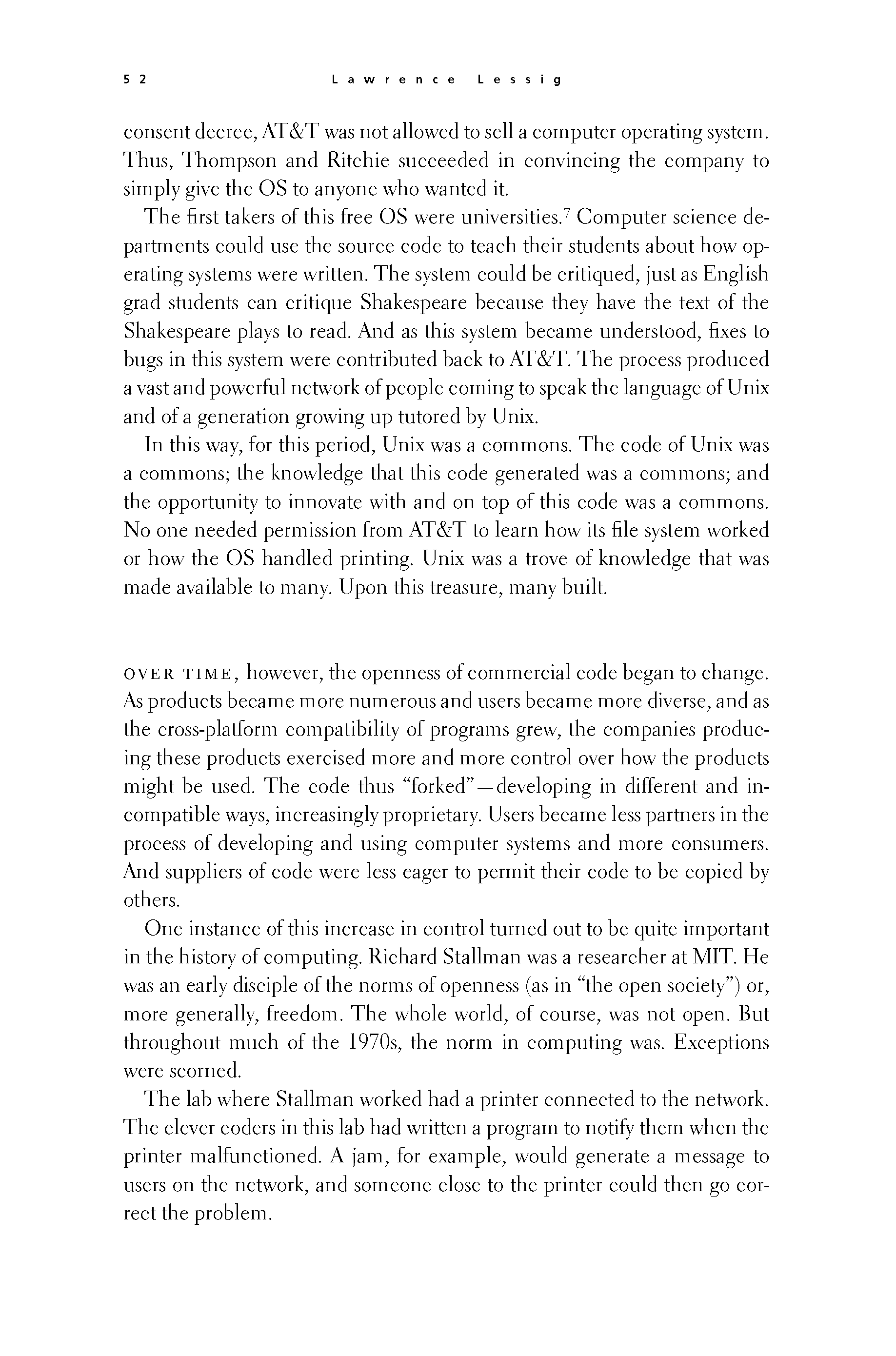 p051 _
-chap- _
toc-1 _
p052w _
toc-2 _
+chap+ _
p053
p051 _
-chap- _
toc-1 _
p052w _
toc-2 _
+chap+ _
p053
consent decree, AT&T was not allowed to sell a computer operating system.
Thus, Thompson and Ritchie succeeded in convincing the company to
simply give the OS to anyone who wanted it.
The first takers of this free OS were universities.[4-7] Computer science de-
partments could use the source code to teach their students about how op-
erating systems were written. The system could be critiqued, just as English
grad students can critique Shakespeare because they have the text of the
Shakespeare plays to read. And as this system became understood, fixes to
bugs in this system were contributed back to AT&T. The process produced
a vast and powerful network of people coming to speak the language of Unix
and of a generation growing up tutored by Unix.
In this way, for this period, Unix was a commons. The code of Unix was
a commons; the knowledge that this code generated was a commons; and
the opportunity to innovate with and on top of this code was a commons.
No one needed permission from AT&T to learn how its file system worked
or how the OS handled printing. Unix was a trove of knowledge that was
made available to many. Upon this treasure, many built.
///\\\
Over time, however, the openness of commercial code began to change.
As products became more numerous and users became more diverse, and as
the cross-platform compatibility of programs grew, the companies produc-
ing these products exercised more and more control over how the products
might be used. The code thus "forked" -- developing in different and in-
compatible ways, increasingly proprietary. Users became less partners in the
process of developing and using computer systems and more consumers.
And suppliers of code were less eager to permit their code to be copied by
others.
One instance of this increase in control turned out to be quite important
in the history of computing. Richard Stallman was a researcher at MIT. He
was an early disciple of the norms of openness (as in "the open society") or,
more generally, freedom. The whole world, of course, was not open. But
throughout much of the 1970s, the norm in computing was. Exceptions
were scorned.
The lab where Stallman worked had a printer connected to the network.
The clever coders in this lab had written a program to notify them when the
printer malfunctioned. A jam, for example, would generate a message to
users on the network, and someone close to the printer could then go cor-
rect the problem.
[[52]]
p051 _
-chap- _
toc-1 _
p052w _
toc-2 _
+chap+ _
p053